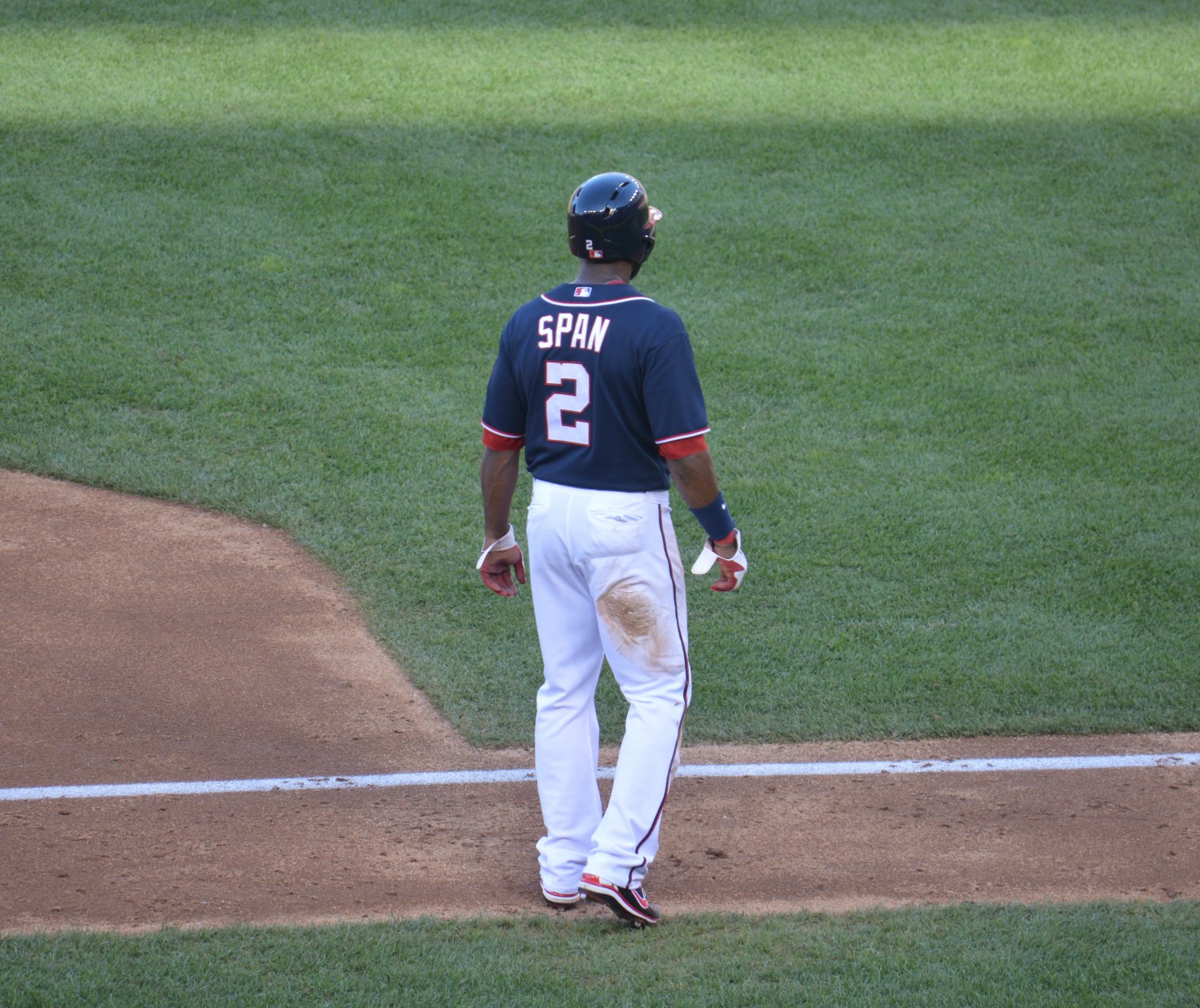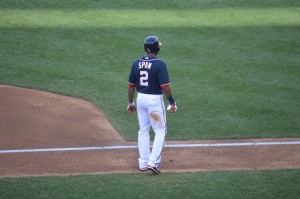
Listening to Denard’s Mom
The Nationals have started to dig out of the hole. The mark of the good ball player and the good team is competing consistently, going out and playing to win day-in and day-out. Washington has been consistently competitive in recent weeks. Even when they have been down early in games, they have punched and clawed their way back to key wins against the Royals and Phillies.
Had they not played the Braves seven games during the month of August, the Nationals would be 12-of-16 for the month, playing good baseball consistently—with Sunday’s eighth inning being an exception, almost an outlier. The offense—scoring 3.92 runs per game for the season–has gotten up off the mat and climbed to where it is within a stone’s throw of league average. Werth and Harper have been hot and Wilson Ramos and Ian Desmond have added much needed punch as well.
If they would only listen to Denard Span’s mother more often and attack the ball aggressively in the strike zone early in the count, they might even have a run in them yet.  It is the maddeningly tentative approach that finally got the best of Mrs. Span, who called this past weekend to ask her son why he was taking so many first pitch strikes.
It is the maddeningly tentative approach that finally got the best of Mrs. Span, who called this past weekend to ask her son why he was taking so many first pitch strikes.
But it is not just her son. Many of the Nationals, most notably Ryan Zimmerman and Anthony Rendon, watch the first pitch strike, the get-me-over fastball that sails past them like Casey at the bat: “That ain’t my style said Casey. Strike One, the umpire said.”
Both in the batter’s box and in the field, many of the players watch and wait until their chance has come and gone. It was not just Craig Stammen watching from the mound and failing to cover first base on Sunday. The lack of an aggressive approach has defined the Nationals 2013 season.
It has been most apparent against the aggressive teams who play at the top of their game every pitch, every out. The Braves would be exhibit A in that argument. Atlanta plays hard from start to finish, and they don’t beat themselves with mistakes. The teams that make the fewest mistakes lead the National League. Atlanta, St. Louis and Cincinnati make fewer errors than anyone and it shows when they come to Washington.
They defend the plate aggressively, pitching inside and driving the batter back to a manageable distance. The Braves, Pirates, Reds and Cardinals are among the teams that lead the NL in both ERA and hit batsmen. The difference between the Nationals and the league leaders shows up not just in the standings, but in the head-to-head match ups.
Against the Braves, the Cardinals and the Dodgers—the leaders in each of the NL Divisions—the Nationals have performed woefully, like pretenders playing the champs. Washington has but five wins in 25 games against the leaders. Against the rest of the National League they are 12 games over .500—good enough for playoff contention.
Yes, the Nationals are making a game of it in August. They are playing better baseball, hitting with more confidence and playing better defense—even with the glove the Nationals have gotten off the mat and moved away from league worst numbers. But if they want to make a run, they have to become more aggressive and not just when Denard Span’s mother calls. They need leadership from somewhere that kicks them into a slightly higher gear when the game is on the line and when the best teams are in town.
There is no one part of the team that has been responsible for the resurgence. They are making a game of it as they go down the stretch because they are playing better as a team. Yes having a better bullpen would help—the relief corps is ranked 22nd in the majors. But even there gutty performances from Tanner Roark have kept the team in games and allowed come-from-behind wins.
The test will come in September when there are key series against the Braves and Cardinals. Winning against the best is still the mark of a champion. The Nationals can still make a game of it and establish their right the winner’s circle in 2013.


Engage us on Facebook
Follow us on Twitter
Tweets by @mymcmedia